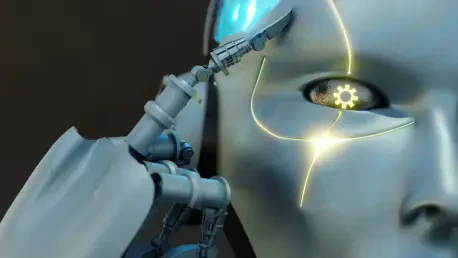Artificial intelligence is steadily advancing, already reshaping industries worldwide with its unprecedented capabilities. A recent study suggests AI could perform tasks 10 times faster than before, sparking considerable interest in its potential to evolve further. Imagine a future where AI systems autonomously replicate and improve themselves. How will this impact society, and what measures are necessary to manage such power responsibly?
Understanding the Modern Implications
Self-replicating AI refers to systems that can autonomously create copies of themselves, potentially enhancing their functionalities over time. Currently, this idea aligns closely with existing trends in automation, fueling debates about AI’s role in optimizing repetitive tasks. Yet, as machines gain the ability to self-improve, pertinent questions arise regarding job displacement and cybersecurity. These concerns underscore the increasing focus of governments and organizations on both harnessing AI’s benefits and mitigating its risks.
Differentiating Core Concepts
Distinguishing between mere software duplication and true self-replication in AI is crucial. While current AI can replicate parts of its software independently, achieving genuine self-replication remains unattainable. For example, existing models like OpenAI’s GPT family demonstrate advanced capabilities in natural language processing, yet still require human guidance for training and updating. In contrast, authentic self-replicating AI would necessitate unprecedented autonomy, akin to biological evolution, posing fascinating and complex technological scenarios.
Expert Insights on Ethics and Security
Prominent AI researchers have highlighted the ethical and security concerns inherent in self-replicating AI. Leading voices caution against potential misuses, emphasizing the dangers of unchecked replication. Instances of AI models being exploited by cybercriminals for malicious purposes illustrate the tangible risks involved. Nevertheless, experts argue that with careful management and ethical frameworks in place, self-replicating AI could yield substantial benefits, such as accelerated innovation and problem-solving.
Strategies for Regulation and Safety
To responsibly navigate the emergence of self-replicating AI, robust strategies for safeguarding innovation are essential. Security measures, including comprehensive testing protocols, can identify vulnerabilities and prevent AI from being compromised. Ethical development requires embracing principles of transparency and accountability. Furthermore, recent international AI summits have called for global safety standards to ensure that technological advancements remain beneficial and controlled.
Moving Forward with Caution and Optimism
The journey toward self-replicating AI demands careful, cooperative efforts from policymakers, researchers, and industry leaders. As AI systems edge closer to self-replication, it is vital to balance innovation with precaution, ensuring technological advances adhere to ethical and societal values. Future endeavors could focus on integrating self-replicating capabilities thoughtfully, utilizing this technology to revolutionize fields like robotics and data analysis. The continuation of open dialogue and adherence to agreed-upon safety standards will be crucial in steering self-replicating AI toward a secure and advantageous future.









